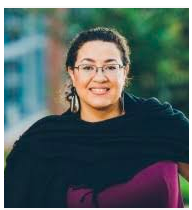#BlackLivesMatter, and So Do Our Wounds
Diabetes. High blood pressure. Obesity. Edema. These are common diagnoses heard in households of many Africans and African-Americans. According to the CDC’s data obtained from 2015-2016, Non-Hispanic black adults were more likely than any other racial group to have diabetes, high blood pressure, and obesity. For black Americans 45-64, Heart disease and diabetes are the #1 and #4 causes of death, respectively. As black Americans age, risks of stroke increase, which can lead to paralysis and decreased mobility. All of these chronic conditions can decrease the strength and barrier properties of the skin, causing wounds to develop.
– Hypertension: Per 2013-2016 CDC data, almost 41% of black men and 44% of black women have been diagnosed with high blood pressure. High Blood Pressure and heart disease cause extra stress on the normally stretchy arteries and veins, and can add plaque to the linings of arteries. This can lead to peripheral artery disease, causing painful, deep, “punched-out” sores to develop on the legs.
– Obesity: in the African American community, 37.5% of men and 56.1% of women are categorized as obese (BMI ≥ 30). Chronic obesity can lead to increased swelling of the legs (lymphedema) and decreased venous return (venous insufficiency). These can cause open weeping sores on the legs, which may take years to completely heal. African American patients are diagnosed later than non-African Americans, leading to longer healing time, higher risk of infections, and more expensive and painful treatments.
– Diabetes: this can be the most devastating of these leading diseases, causing retinopathy (vision loss), neuropathy (chronic numbness/tingling), kidney failure, and significantly increases the risk of heart disease and stroke. Diabetes causes injury to smaller blood vessels and nerves, which can lead to deep wounds on the feet (diabetic foot ulcers); if these wounds become infected or don’t heal, they can require foot or leg amputations. African Americans admitted to the hospital for their diabetic ulcers have a higher chance of requiring an amputation than Caucasian patients. This can be devastating physically, socially, and emotionally.
While we, as a community, heal deep racial wounds, we cannot neglect the impact of the physical ones. Black Lives Matter activists have outlined policy goals they would like to achieve, and so have we:
– Training providers to diagnose ulcers before they become severe.
– Educating our patients, and the caregivers of our patients, regarding chronic disease management and wound care
– Having the racial makeup of our clinics and providers reflect the communities they serve
– Empowering patients to ask questions about their chronic diseases, and take control of their care.
– Improve access to quality wound care specialists
– Training providers to diagnose ulcers before they become severe.
– Educating our patients, and the caregivers of our patients, regarding chronic disease management and wound care
– Having the racial makeup of our clinics and providers reflect the communities they serve
– Empowering patients to ask questions about their chronic diseases, and take control of their care.
– Improve access to quality wound care specialists
References:
https://www.cdc.gov/
https://www.cdc.gov/nchs/
http://main.diabetes.org/dorg/
Dua A, Heller JA. Advanced Chronic Venous Insufficiency. Vasc Endovascular Surg. 2017;51(1):12‐16. doi:10.1177/1538574416682175
Tan TW, Shih CD, Concha-Moore KC, et al. Disparities in outcomes of patients admitted with diabetic foot infections [published correction appears in PLoS One. 2019 Apr 11;14(4):e0215532]. PLoS One. 2019;14(2):e0211481. Published 2019 Feb 4. doi:10.1371/journal.pone.
https://www.cdc.gov/
https://www.cdc.gov/nchs/
http://main.diabetes.org/dorg/
Dua A, Heller JA. Advanced Chronic Venous Insufficiency. Vasc Endovascular Surg. 2017;51(1):12‐16. doi:10.1177/1538574416682175
Tan TW, Shih CD, Concha-Moore KC, et al. Disparities in outcomes of patients admitted with diabetic foot infections [published correction appears in PLoS One. 2019 Apr 11;14(4):e0215532]. PLoS One. 2019;14(2):e0211481. Published 2019 Feb 4. doi:10.1371/journal.pone.
Lynnette A. Morrison MD DABFM CWSP FAPWCA
Family Medicine – Wound Care
Ph (801) 673-1393
Fax (479) 763-3066

